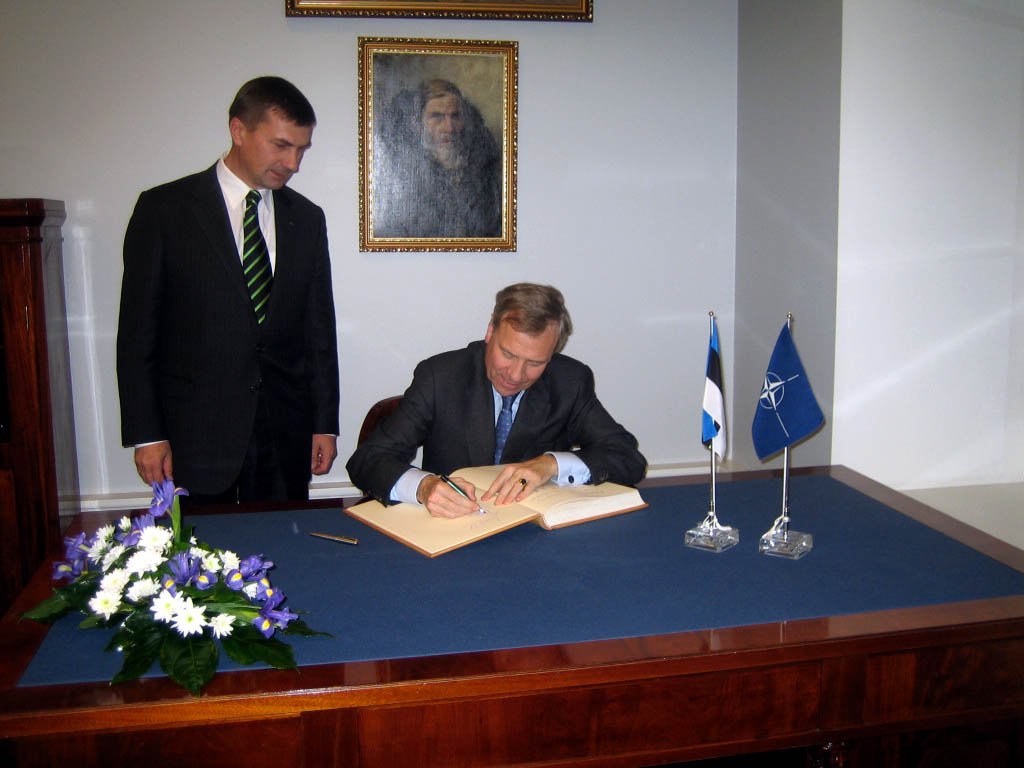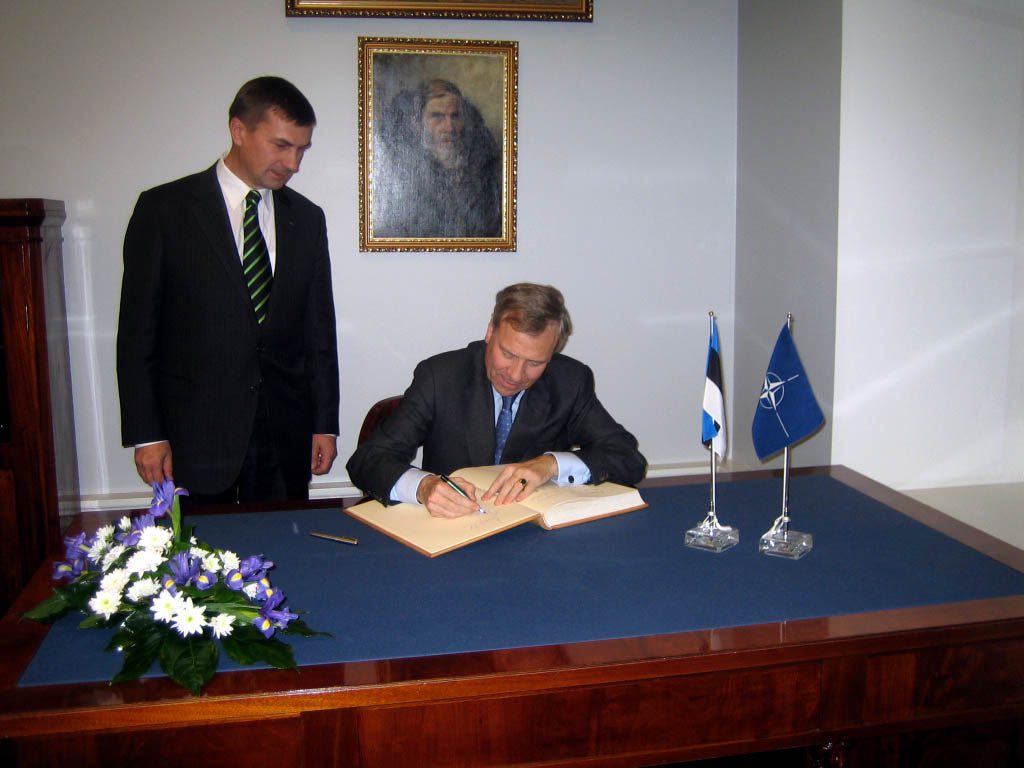
Despite fierce resistance from Moscow, NATO began a month long string of military exercises in Georgia yesterday. These types of training exercises have been often been criticized by Russian leaders as “provocation”. On Tuesday, Russian President Dmitry Medvedev accused NATO of “muscle-flexing” and called the decision to continue with the drills “wrong and dangerous.” Past New Atlanticist articles on this topic can be found here, here, and here.
Most intriguing about this particular exercise is the fact that not all the states that are eligible to participate are in fact participating. While there are some 15 countries contributing forces to the military exercise, Switzerland, Kazakhstan, Moldova, Serbia, Armenia, Estonia and Latvia have all bowed out. Estonia and Lativa, in particular, have elected not to participate despite their longstanding quarrels with Russia. Stratfor noticed this disparity as well, and had this to say regarding Estonia and Lativa’s absence:
Estonia and Latvia have been severely affected by the ongoing economic crisis, with both countries facing double-digit drops in gross domestic product forecast for 2009 (-10.1 percent and -13.1 percent, respectively) as a result of foreign capital flight and exports that are in free fall. Extreme social tension has set in as a result of the harsh economic realities, with both countries witnessing violent protests in January. In the meantime, the Latvian government collapsed early in 2009, and Riga has had to take out a $2.4 billion loan from the International Monetary Fund (IMF). Estonia’s government is set to face a vote of no confidence this week, and a similar loan from the IMF is likely later in 2009.
These conditions have caused Estonia and Latvia to temper their aggressive stance toward Russia. While the two countries are typically vocal and eager to take advantage of Russia’s weaknesses for media attention, they are now backing down as they realize their own positions are weak while Russia’s position is growing stronger. This explains Estonia’s and Latvia’s withdrawal from the NATO exercises, as they realize that their participation would be far more damaging to their relationship with Russia and that their financial situations would make joining in on the drills even more difficult. For these two countries, showing solidarity and support for Georgia makes a great deal of sense in theory (i.e., supporting in principal Georgia’s struggle against Russian influence). But it becomes increasingly hard to justify in practice when Russian influence is being felt in a real sense on their home turf.
The article also provides some great insight into the original relationship that the Balkan neighbors have with NATO and with its Russian counterparts. This sign of easing tensions comes on the heels of the news that the former head of security at the Estonian Defense Ministry was jailed in late February for selling secret NATO documents to Russia. The subsequent expulsion of 2 Russian diplomats from NATO because of the scandal has further strained ties between Estonia, NATO, and Russia.
Estonia and Latvia are playing a very delicate balancing act, trying to keep their NATO allies happy while tempering Russian aggression. Today, the Estonian government approved a resolution that would double its troop presence in Afghanistan, in an attempt to show solidarity with the NATO mission there. However, when recently asked directly regarding Russian-Estonian relations as a result of the latter joining NATO, the former Estonian Prime Minister Mart Laar responded very diplomatically, saying his country’s accession to NATO and the European Union has removed many potential problems in their relations.
The comment’s tone is a far cry from just two years ago, when the two countries were on the brink of a diplomatic breakdown following the removal of a Soviet-era memorial. However, this is not to say that the former Soviet satellites are anywhere close to reconciliation. NATO has recently chosen Estonia has the new home of its cyberwar brain trust. As Evgeny Morozov in Newsweek notes:
The choice of Estonia as the home to NATO’s new cyberwar brain trust is not accidental. In 2007 Estonia was in a public squabble with Russia over the fate of a Soviet-era monument when it suddenly found itself under a wave of cyberattacks. Among the targets were two of Estonia’s biggest banks, whose online systems were severely degraded for several hours. The scale of the economic damage is still classified as a state secret, but the fact that this happened in “E-stonia,” a proud digital society where even parking meters take payment via text messages, was eye-opening. Although the decentralized nature of cyberattacks made it hard to know whether the Kremlin ordered the attacks, clues led Estonia to a Russian suspect, whom the Kremlin refused to extradite.
These new headquarters put Estonia, and its neighbor Latvia, at the forefront of NATO’s new struggle against Russia. Considering the success that Russia achieved from perhaps the first successful use of cyberwar in the modern age during its operation in Georgia, Estonia will likely be a major battlefield in this new initiative. How, this new balancing act will affect the new enterprise, remains to be seen.
Ahmed R. Bhadelia is web developer at the Atlantic Council. Credit: NATO Multimedia.
Image: b061110ad.jpg
